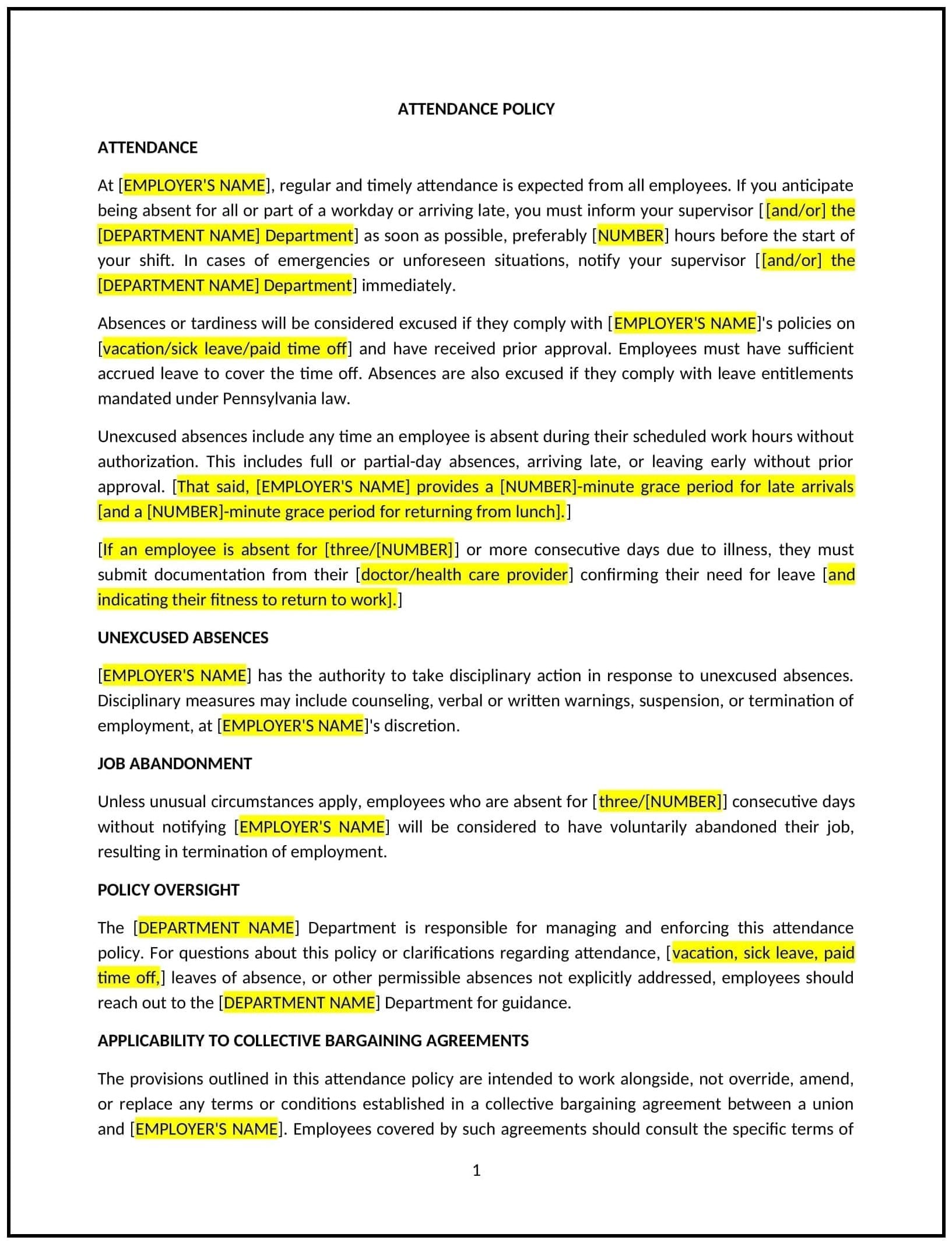Got contracts to review? While you're here for policies, let Cobrief make contract review effortless—start your free review now.

Customize this template for free
Attendance policy (Pennsylvania)
This attendance policy is designed to help businesses in Pennsylvania establish clear expectations for employee attendance, fostering consistency, accountability, and operational efficiency. Whether managing challenges related to inclement weather, remote work setups, or shift-based industries, this template provides comprehensive guidance tailored to Pennsylvania’s workforce and legal environment.
By using this template, businesses can reduce misunderstandings, streamline attendance management, and support compliance with Pennsylvania labor laws.
How to use this attendance policy (Pennsylvania)
- Define attendance expectations: Clearly outline rules for punctuality, start times, and procedures for reporting absences or tardiness.
- Address Pennsylvania-specific challenges: Adapt the policy to account for local factors, such as seasonal weather disruptions, rural commuting challenges, or industry-specific needs.
- Establish leave procedures: Provide steps for requesting time off, including required notice periods, documentation, and approval processes.
- Set consequences: Include disciplinary measures for unexcused absences or chronic tardiness, ensuring they comply with Pennsylvania labor regulations.
- Communicate effectively: Share the policy with all employees and ensure supervisors are trained to apply it fairly and consistently.
Benefits of using an attendance policy (Pennsylvania)
A well-structured attendance policy supports operational efficiency and fairness. Here's how it helps:
- Promotes consistency: Ensures all employees understand attendance expectations, reducing confusion and miscommunication.
- Supports compliance: Aligns with Pennsylvania labor laws and federal regulations, minimizing legal risks.
- Enhances accountability: Encourages employees to take responsibility for their attendance and punctuality.
- Improves morale: Fosters fairness by applying the same attendance standards to all employees.
- Reduces disruptions: Helps maintain productivity by minimizing absenteeism and ensuring proper staffing levels.
Tips for using an attendance policy (Pennsylvania)
- Communicate expectations: Share the policy during onboarding and ensure employees understand attendance expectations and reporting procedures.
- Train supervisors: Equip managers to apply the policy consistently and handle attendance issues fairly and effectively.
- Address local challenges: Include provisions for Pennsylvania-specific issues, such as weather-related absences or flexible arrangements for rural areas.
- Monitor attendance: Regularly review attendance records to identify patterns and address issues proactively.
- Review periodically: Update the policy to reflect changes in Pennsylvania labor laws, organizational needs, or industry practices.